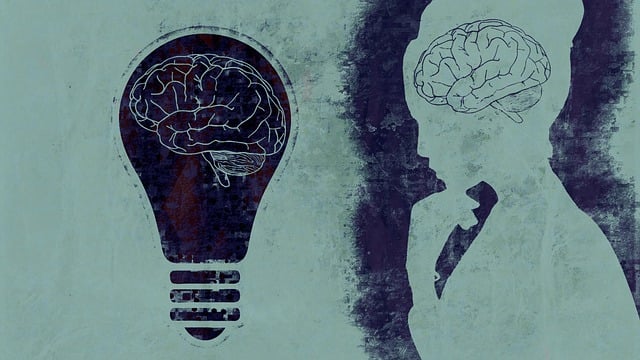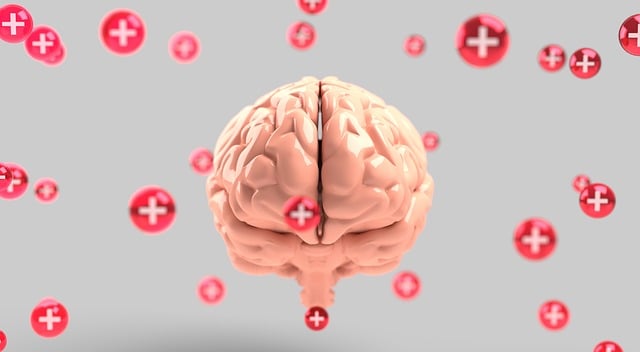Substance abuse is a complex mental health issue driven by biological, psychological, and social factors, often leading to misuse or dependency. Early intervention through Golden First Responders Therapy is crucial in preventing severe consequences. This revolutionary approach combines cognitive-behavioral therapy (CBT), mindfulness, and emotional regulation strategies to address root causes often stemming from childhood experiences. By fostering self-awareness and improving mood stabilization, individuals learn to manage anxiety relief and break free from the cycle of substance abuse for long-term recovery. Comprehensive Golden First Responders Therapy and risk reduction strategies, integrated with wellness initiatives for healthcare providers, create a robust framework for effective treatment and improved patient outcomes.
Substance abuse poses significant risks, impacting individuals’ physical and mental health, relationships, and overall well-being. Understanding these dangers is the first step towards recovery. This article delves into effective risk reduction strategies for substance abuse, with a special focus on the transformative potential of Golden First Responders Therapy (GFRT). By exploring these approaches, we aim to provide insights that foster healthier choices and promote successful long-term recovery.
- Understanding Substance Abuse and Its Risks
- The Role of Golden First Responders Therapy
- Comprehensive Risk Reduction Strategies
Understanding Substance Abuse and Its Risks

Substance abuse is a complex issue that goes beyond mere irresponsible behavior; it’s a chronic mental health condition rooted in biological, psychological, and social factors. It involves patterns of misuse or dependency on substances like alcohol, drugs, or prescription medications, leading to detrimental effects on an individual’s life and well-being. Understanding these risks is the first step towards prevention.
Golden First Responders Therapy emphasizes early intervention as a powerful tool in mitigating potential harm. By recognizing the signs of substance abuse and providing timely support, individuals at risk can receive the necessary care before it spirals out of control. This approach is particularly crucial for mental health professionals who, due to their close interactions with clients, are often the first line of defense against rising mental illness stigma and its associated substance abuse. Effective risk management planning for these professionals involves staying updated on evidence-based practices, recognizing when a client might be at higher risk, and having resources readily available to connect them with appropriate treatment options, including programs focused on Mental Illness Stigma Reduction Efforts and Mental Health Awareness campaigns.
The Role of Golden First Responders Therapy

Golden First Responders Therapy is a pioneering approach that focuses on addressing the root causes of substance abuse. This therapy recognizes that many individuals turn to drugs or alcohol as a means of coping with underlying emotional and psychological issues. By targeting these first responses, often rooted in childhood experiences, the therapy aims to provide lasting solutions. It encourages clients to explore their feelings, thoughts, and behaviors, fostering self-awareness and promoting healthier coping mechanisms.
This therapeutic method combines elements of cognitive-behavioral therapy (CBT), mindfulness practices, and emotional regulation strategies. It teaches individuals how to manage anxiety relief and improve mood stabilization through the application of mind over matter principles. By empowering clients with the tools to understand and reframe their triggers, Golden First Responders Therapy enables them to break free from the cycle of substance abuse, paving the way for long-term recovery and improved overall well-being.
Comprehensive Risk Reduction Strategies

Comprehensive Risk Reduction Strategies play a pivotal role in mitigating substance abuse issues, offering a multifaceted approach to support individuals on their path to recovery. Beyond traditional treatments, integrating innovative methods such as Golden First Responders Therapy emerges as a powerful tool. This therapeutic intervention focuses on providing immediate, specialized care to those facing substance abuse crises, addressing the root causes and fostering resilience.
Integrating burnout prevention strategies for healthcare providers is also essential within this context. By prioritizing mental wellness through dedicated podcasts or series production focused on mood management, professionals can enhance their own well-being while better supporting patients navigating substance abuse. Such initiatives contribute to a healthier, more sustainable treatment environment, ultimately reinforcing the comprehensive nature of risk reduction efforts.
Substance abuse poses significant risks, but understanding and implementing effective strategies can mitigate these dangers. Golden First Responders Therapy emerges as a powerful tool in addressing the root causes of addiction. By combining specialized treatment with comprehensive risk reduction tactics, individuals can navigate their recovery journeys more effectively. These strategies, including education, support groups, and behavioral modifications, empower people to make healthier choices and build resilience against substance abuse.














